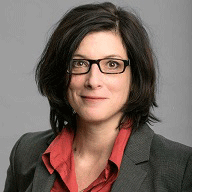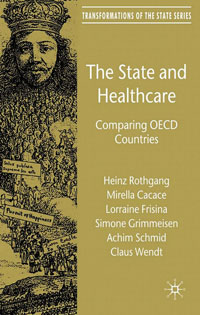 Dr. Mirella Cacace
Dr. Mirella CacaceSince March 1st, 2014, the Centre for Social Policy Research (ZeS) at the University of Bremen has been conducting a project on the diffusion of Managed Care in international health care systems. By determining the promoting and impeding indicators for successful policy learning, the project aims to contribute to the application-oriented research field. It is financed by the University's central research fund and headed by Mirella Cacace in cooperation with Heinz Rothgang.
The project ties up with the DFG-funded Collaborative Research Centre 597 at the University of Bremen and Jacobs University. Between 2003 and 2010, Mirella Cacace has been employed as research associate in the related project C3 "The Changing Role of the State in OECD Health Care Systems". Already in her doctoral thesis, Cacace explained transformations of governance structures in the US-American health care system on the basis of new institutional economics - which also emphasize the role of Managed Care. With the increasing complexities in economics and politics, a systematic investigation of policy diffusion and policy transfer in health care systems gains considerable importance. The project's research aim is therefore to analyse policy learning as a possible form of diffusion in health care systems on the basis of Managed Care. The following guiding questions will be taken into account:
- How does learning in health care systems work?
This questions analyses learning structures and mechanisms with a focus on both international (vertical) and intranational (horizontal) dimensions - Why and for which purposes do health care systems learn?
It will be assumed that learning in health care systems is carried out consciously and on purpose. It takes place either in order to realize certain policy outcomes or due to the motivation of single actors. - What are the indicators for successful learning?
The project will be conducted in Faculty 11 "Health and Human Sciences", University of Bremen, in collaboration with the Centre for Social Policy Research.
Contact:
Prof. Dr. Mirella Cacace
Catholic University of Applied Sciences Freiburg
Karlstrasse 63
79104 Freiburg
Phone: +49 761 200-1553
E-Mail: mirella.cacace@kh-freiburg.de












